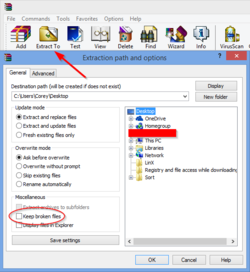jonahconrad
New Member
- Joined
- Jul 23, 2015
Hi,
I have an evaluation copy of Win RAR in my Windows 2003 server.
Today I tried to unzip a file which is around 7 GB in size, after completing the unzip I am getting an error "The file currept". I am doing the same for the last couple of weeks.
What will be root cause of this problem.
Please advice
I have an evaluation copy of Win RAR in my Windows 2003 server.
Today I tried to unzip a file which is around 7 GB in size, after completing the unzip I am getting an error "The file currept". I am doing the same for the last couple of weeks.
What will be root cause of this problem.
Please advice
